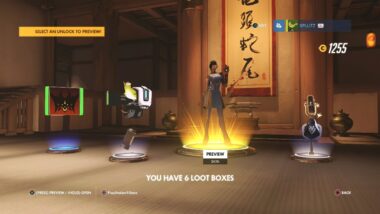Fortnite, a cultural phenomenon in gaming, has continually transformed its in-game economy, transitioning from loot boxes to direct purchase models. The shift in monetization strategies has significantly impacted player spending habits and the gaming industry as a whole.
The Era of Loot Boxes
Initially, Fortnite utilized loot boxes, or “loot llamas,” as a primary means of monetization. Players spent V-Bucks, the in-game currency, to purchase llamas that contained randomized items, creating an element of chance in obtaining desired cosmetics or gameplay enhancements. However, this mechanic drew criticism for resembling gambling practices and lacking transparency in drop rates.
Transition to Direct Purchases
Recognizing the ethical and legal concerns surrounding loot boxes, Epic Games pivoted towards a direct purchase model. This new approach allowed players to buy specific items from the in-game store without relying on chance. This shift aimed to provide transparency and empower players to make informed purchasing decisions while eliminating the gambling-like nature of loot boxes.
Impact on Player Spending and Engagement
The change to direct purchases altered players’ spending habits. With the ability to purchase desired items outright, players felt more in control of their spending, leading to increased consumer confidence and a willingness to invest in the game. Moreover, the removal of loot boxes enhanced fairness, ensuring that all players had equal access to desired items without relying on luck.
Challenges and Adaptations
Despite the advantages, the shift faced challenges. The direct purchase model risked reducing the sense of excitement associated with the randomness of loot boxes. Additionally, the pressure to consistently introduce new, enticing items to the store to maintain revenue streams posed a creative challenge for developers.
To counter these challenges, Fortnite introduced limited-time events and collaborations, offering exclusive and desirable items for a short duration. These events created a sense of urgency and excitement among players while driving sales and engagement.
Industry Impact and Regulatory Response
Fortnite’s shift from loot boxes to direct purchases influenced the wider gaming industry. Developers and publishers observed the success of this model, prompting similar transitions in other games. Additionally, regulatory bodies scrutinized loot box mechanics, leading to discussions about classifying them as gambling and enforcing stricter regulations.
Future Considerations and Conclusion
The future of Fortnite’s in-game economy rests on a delicate balance. Striking a chord between direct purchases, engaging content, and ethical monetization practices will be crucial. Maintaining player trust through transparency while offering diverse, appealing content will drive continued success.
In conclusion, Fortnite’s journey from loot boxes to direct purchases exemplifies the gaming industry’s responsiveness to ethical concerns and player preferences. The shift has not only influenced player spending habits and industry practices but also sparked discussions about the ethical implications of in-game monetization.


